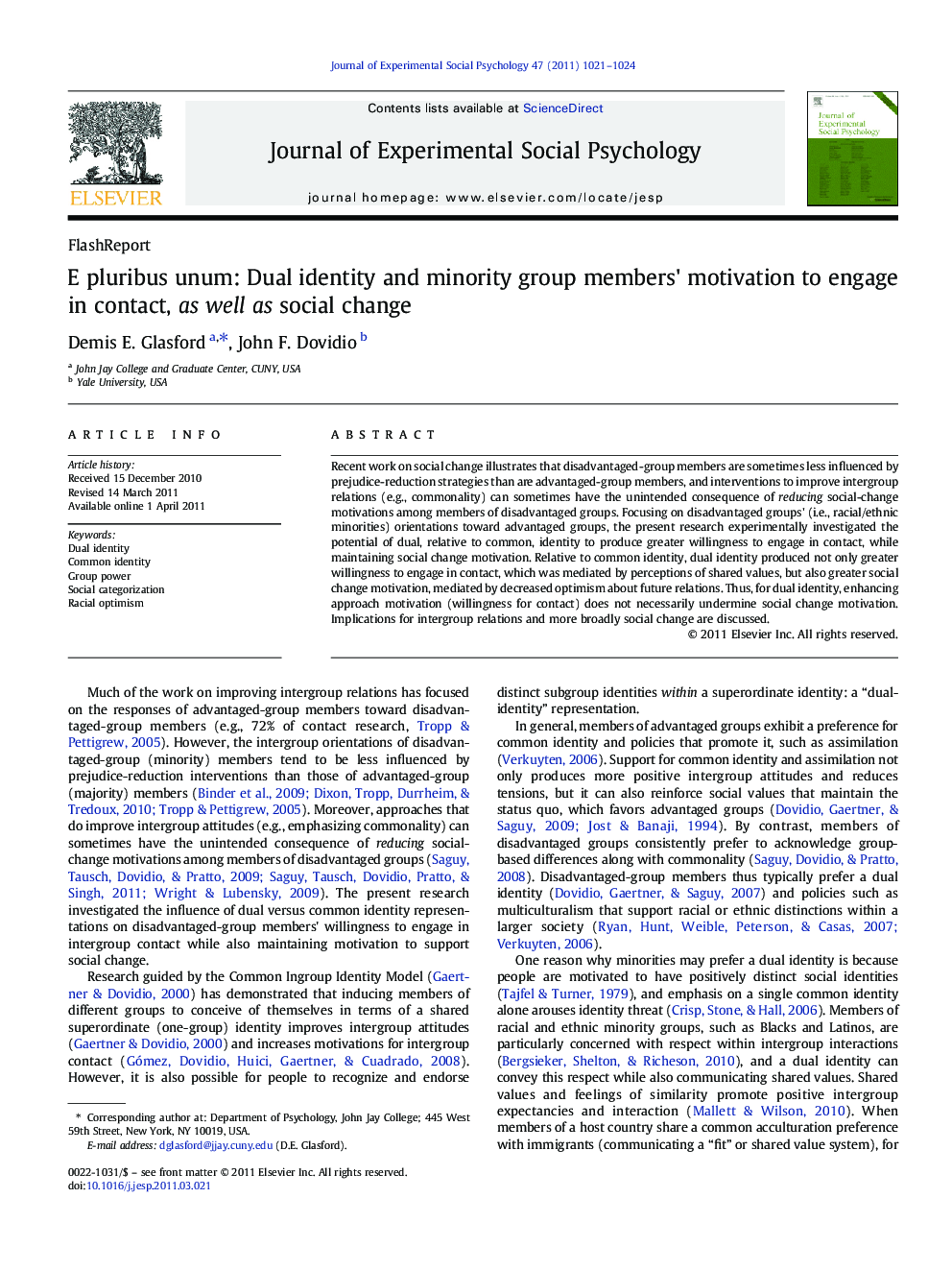| Article ID | Journal | Published Year | Pages | File Type |
|---|---|---|---|---|
| 948170 | Journal of Experimental Social Psychology | 2011 | 4 Pages |
Recent work on social change illustrates that disadvantaged-group members are sometimes less influenced by prejudice-reduction strategies than are advantaged-group members, and interventions to improve intergroup relations (e.g., commonality) can sometimes have the unintended consequence of reducing social-change motivations among members of disadvantaged groups. Focusing on disadvantaged groups' (i.e., racial/ethnic minorities) orientations toward advantaged groups, the present research experimentally investigated the potential of dual, relative to common, identity to produce greater willingness to engage in contact, while maintaining social change motivation. Relative to common identity, dual identity produced not only greater willingness to engage in contact, which was mediated by perceptions of shared values, but also greater social change motivation, mediated by decreased optimism about future relations. Thus, for dual identity, enhancing approach motivation (willingness for contact) does not necessarily undermine social change motivation. Implications for intergroup relations and more broadly social change are discussed.
